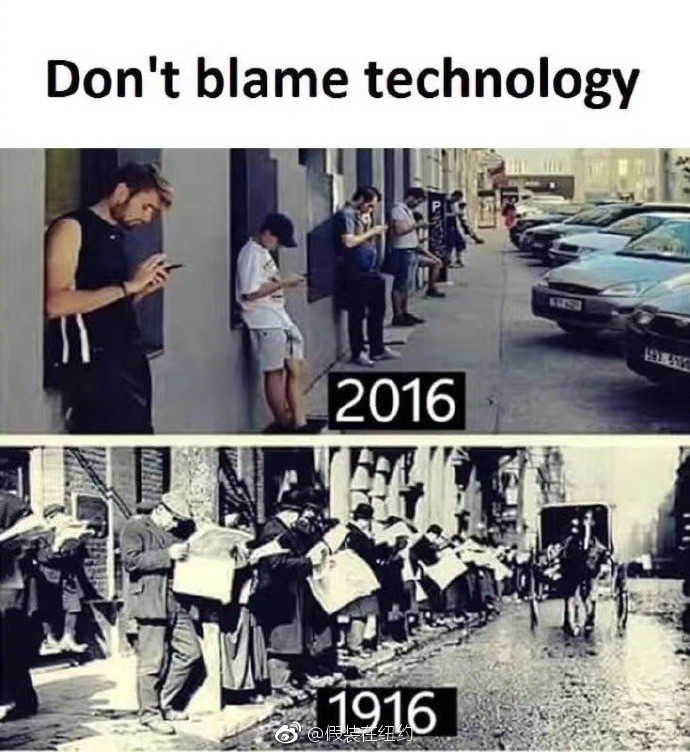China Spotlights
China: a great digital wonderland
25.04.2017
My wife and her smartphone, a relationship which is not based on moderation at all. I would say that about half the time she spends at home, she is staring at the huge screen of her iPhone 7, chatting with friends, shopping online or at least doing research into products, watching little movies from the endless stream of viral videos, reading news or navigating her digital world in any other way. And what can I say: All my friends say the same about their wives: We must share her with Mister Smartphone!
Recently, one evening at the subway station, we saw a large poster which is part of a state advertising campaign. The banner was precisely about this topic: A young woman is sitting on her bed and is busy with her iPhone, while her child is sitting next to her saying: “I’m sitting next to you, but you don’t see me.” My wife and I looked at it in silence, but I think we were both thinking: I hope this will never happen to our child.

However: The picture reflects Chinese reality and addresses a sore spot…
As I will show with a few examples in a moment, in a country like China with its population of more than a billion, the long distances and huge cities, digitalization works like some kind of social, virtual glue in everyday life. But at the same time, just like people in the Western world, we are starting to think about what the triumph of the digital world will mean for our real social relations.
Smartphones and nationwide internet
Let me first give you a few facts: In 2016, the number of internet users in China amounted to 700 million, 650 million of whom use mobile internet according to official information. Half the country is living a “digital” life now, and this trend is irreversible. The range of ages is also becoming increasingly broader. While the average age of social media users in 2013 was 29 years, it has now climbed to 32. Thanks to the fast proliferation of smartphones and the easy accessibility of mobile internet, more and more Chinese participate in digital life with increasing intensity. By the way, mobile internet is quite cheap in China: For 50 RMB a month (approximately 7 Euros), China Telecom currently offers a cell-phone contract including calls, text messages and a data volume of 2GB. This is even affordable for the lower stratums of society, who may not have standing internet connection at home.
“Internet Plus”
In China, mobile internet is not only used a lot for common global services such as communication, e-commerce and entertainment, but it has also gained enormous importance in the areas of health, government agencies and educational institutions. At this point, I might have to explain you a term which has been very common in China in the last one or two years, but is hardly known outside of China: “Internet Plus” or “Internet+” (Chinese: 互联网+, see). This keyword is used a lot here and refers to the use of internet in traditional economic sectors not belonging to the IT industry. In Germany, this is called “Internet 4.0“, in the US “Industrial Internet”.
“Internet + Medical System”: health care is going digital
In the area of health care in China, a topic of ongoing discussion is how to provide efficient public health care to the country’s huge population, especially the fast-aging urban population, despite the scarce resources.
Internet+ is facing great expectations in this area. Health care is supposed to be optimized with the help of mobile internet, wearables, cloud computing, and big data. And the system is already taking great steps in this direction.
1. Nowadays, it is possible to make appointments online with nearly any public health care facility, that is, with any hospital and any physician, and payment for the services can also be done using an app. To make this function without difficulties, the public website “Guahao” was launched, which can be used all over the country and has almost 150 million users by now, with its mobile version, the app “WeDoctor” being even more popular. (Source: “Internet +“ Medicine Research Report, iiMedia Research, 2015)
2. Apart from the public health care facilities in China, there is also a growing private medical system, especially in the areas of dentistry, gynecology/obstetrics and pediatric care. An increasing number of apps and platforms providing information and consulting are also offered in this sector.
3. Tele medicine Public health institutions are also offering video/phone consulting to reduce the pressure on “real” medical practices. However, this offering has not been used too widely yet, as people have little trust in the consulting they obtain there.
4. Online pharmacies (in China: medical e-commerce)
Due to the numerous scandals involving counterfeit medical drugs in recent years, people have less trust in online pharmacies. The options are there, but they are hardly used. The majority of Chinese prefer hospital pharmacies.
The field of “Internet+Medical System” is very dynamic altogether, and there is now doubt that clever Chinese entrepreneurs will become increasingly active here in the years to come, so there will be a differentiation of the existing offering and/or completely new offerings.
Very popular: digital fitness worlds
Many Chinese, especially in the big cities, are very well-off financially and don’t have to dedicate themselves only to meeting their basic material needs anymore. And what happens in cases like this? People have the time and leisure to deal with other things, for example with the ideals of a modern lifestyle: a healthy life, fitness, hobbies, having fun. And this doesn’t only happen in real life, but also in the digital world or especially there, with the help of social media. Recently, it has become evident that the new, healthy lifestyle was highly attractive to many Chinese, but it was limited to the acquisition of fancy membership cards of the hippest gyms. People were part of this trend, but hardly anybody really lost weight or built up muscles, as working out on one’s own is not much fun. Then the app “KEEP” appeared on the market about two years ago, and the country really started sweating and working out. KEEP offers online courses and individual personal training. The participants can create statistics and exchange photos, videos and experiences, making them feel less as lone fighters, but rather as part of an active group which even allows for a certain competition. The KEEP community already includes 60 million active users who just won’t stop using the app.
China digital: many more trends to be observed
Besides the digital fitness worlds, there are many other service providers in China with digital offers for the modern lifestyle: diets, art courses, travel and socializing, there are digital equivalents for all these areas in China. These offerings more or less integrate the internet in existing services. On the other hand, there are digital applications generating a behavior which is completely new in our country, such as the system of cashless payment, car sharing, bike rental applications or other shared economy offerings. These are really important trends in today’s China, which is why we will soon dedicate a separate post to this topic.
The challenge: using digital options reasonably
In the end, let us go back to our initial topic: Do we have to worry that especially the young Chinese generation will be “digitally deformed”, which will cause social problems? I don’t think so. The image below shows that social behavior is not determined by technology.

Yet, I do think that China is undergoing an era of information explosion and we must learn how to deal with this. We must learn to distinguish important from unimportant information and we must learn to use new technological possibilities to our benefit instead of being at their mercy. If we use mobile internet reasonably, it will even open up MORE opportunities for our social = real coexistence. At the moment, everything is in transition, but I am convinced that we will be able to tackle this challenge.


